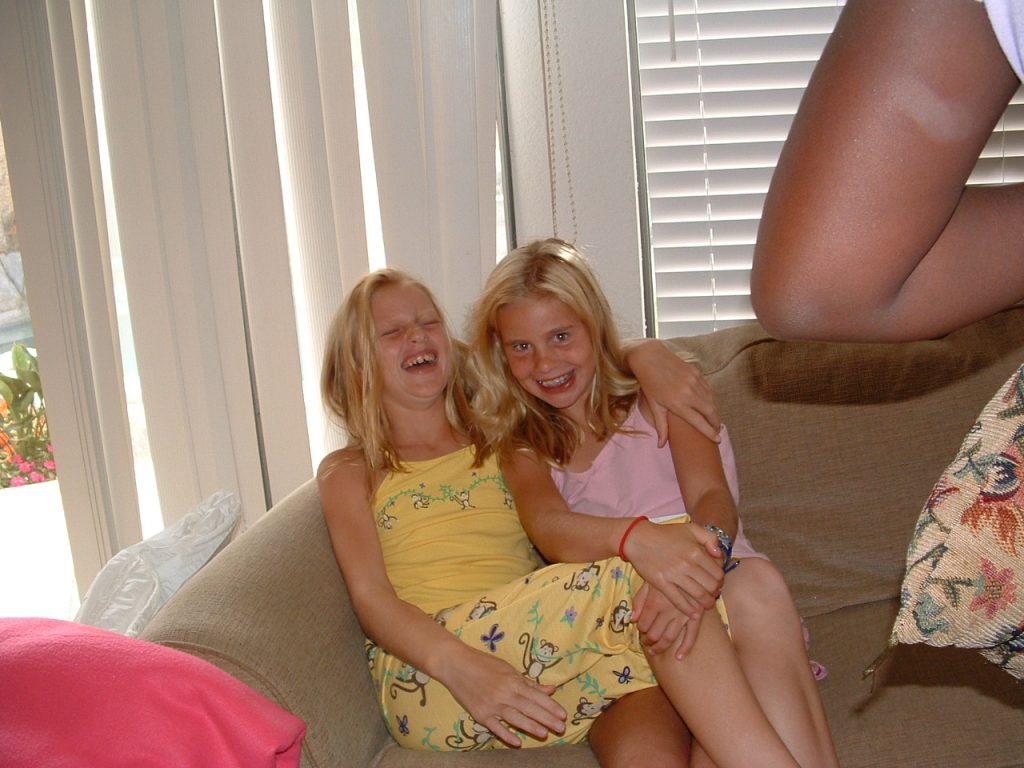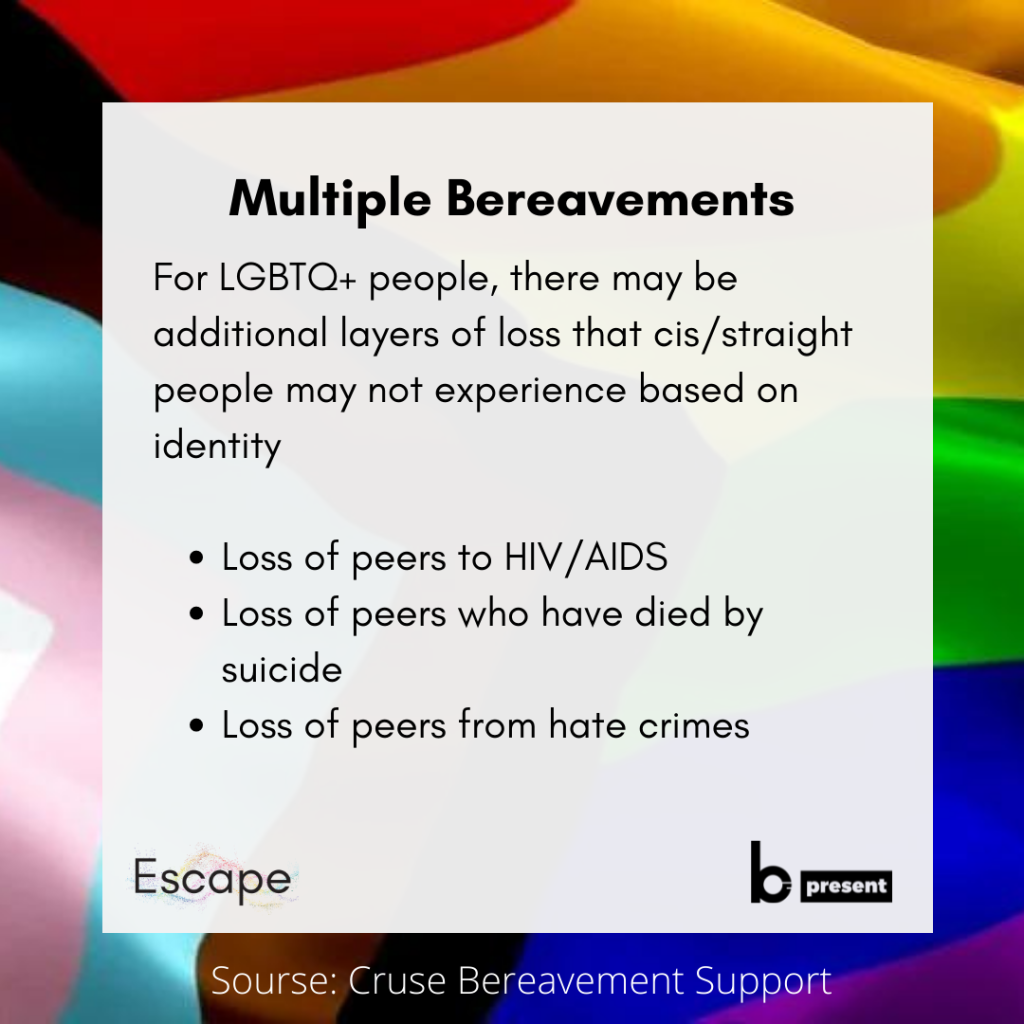Cancer is full of difficult emotions, from diagnosis through treatment and beyond. Here, we discuss the experience of loss and how to maximize the time you have together.
The catalyst for change
The b-present mission started with a lived experience: we lost our inspirational force, Kirsten, to leukemia in 2016. This loss felt abrupt and inexplicable: shortly after ringing the bell to signify the end of her treatment, an infection set in that, without an immune system, her body was unable to fight. The unexpected end to her story shattered the lives of all who knew and loved Kirsten.
Survivors’ Guilt and Isolation After Loss
When we hear about survivors’ guilt, we often hear stories from cancer survivors who feel immense guilt that they are still alive and their friend with cancer is not. Supporters of a loved one often feel lost and alone as they struggle to process losing someone so young.
Friends may be uncomfortable talking about death and are quick to change the subject when it comes up, or they may listen but are at a loss for how to offer comfort and support. The result? The friend or survivor is left feeling even more isolated and alone at a time when they could use a friend the most.
“I almost felt this sense of guilt carrying out my life still after the fact,” said Kelly, Kirsten’s friend since first grade. “I almost felt like, how is this fair? … I am here and I am able to do this … and Kirsten is not.”

Kirsten (left) and Kelly (right) celebrating Kirsten’s 10th birthday.
We know we are not alone in experiencing this loss. As part of our mission, sharing our genuine emotions and experiences is vital to help others out there who may be going through similar difficult times.
In the seventh episode of our Support Squad webinar series, Kirsten’s friends Kelly, Bri, and Jordann offered candid insights into their journey as friends and supporters of a young adult going through cancer.
‘It’s very isolating’
Life was looking up after Kirsten rang the bell, celebrating the end of her cancer treatment, which is why all of her friends were surprised by her subsequent rapid downward spiral. Kelly, Bri, and Jordann agreed—none of them thought the last time they saw Kirsten would be the last time.
“I remember walking through the grocery store and everyone is moving around me and living these lives and I am numb,” said Brianna. “Looking back, you always wish that you visited more. A lot of times it’s realizing that you don’t need to be perfect to show up … Even if you showed up for an hour.”
Be Present, Not Perfect.
We say ‘live life with no regrets,’ but many young adults have never experienced a peer that has been diagnosed with cancer, and fewer have experienced losing a friend at such a young age.
“Shocking doesn’t even begin to describe the experience,” Jordann said. “Cancer is one of the most complicated things you can go through regardless of the role you play in it.”

From left to right: Jordann, Bri, and Kirsten at a concert.
Learning the news of a friend’s diagnosis can be both devastating and surreal. It can feel like a complete shock, and the array of reactions to this life-changing news is normal and expected.
“It felt like I was watching a movie. It didn’t feel real.”
Feeling closed off and isolated, wanting to ‘fix’ the problem, and jumping in to do everything and anything you can—having so many unanswered questions is the hardest part.
- What type of cancer is it?
- What is the prognosis?
- What’s appropriate to say?
- How can I be there for her?
- How can I support my friend?
It is normal to want everything to be perfect, but striving for perfection can get in the way of simply being present.
At b-present, we are passionate about empowering the network of people that will be present for their loved ones. Social support is critical to a newly diagnosed young adult’s cancer journey and health outcomes. b-present is on a mission to improve the experience for both young adults with cancer and their supporters.
“Supportive friends are a huge untapped resource.”
Young adults diagnosed with cancer are required to press pause during such a pivotal time in their lives and often do not receive consistent support, leading to isolation and poor quality of life. The health care system is often at capacity, and caregivers are stretched to their limits. Friends have this incredible opportunity to provide some relief to their friend with cancer and the people who care for them—finding the time and making time to be present with your loved one has a tangible impact on your friend and the support network. And remember, you don’t need to do something big to make a big difference.
Every person has the potential to provide the support and love that is needed during this difficult time, and yet isolation is still a problem. So what’s the problem? Inexperience? Fear? No time? We find all kinds of excuses not to stay connected. The challenge is to turn that response on its head, get out of your own way, and lean into the fear, self-doubt, and the awkward unknown.
Remember…
The experience is often new for everyone, so take comfort in knowing you are in it together and finding your way. Try not to get hung up on the perfect support experience. Instead, stay authentic to your relationship, and accept that there will be imperfections and mistakes along the way. Have patience and be kind to each other, find forgiveness when mistakes happen, and keep moving forward together. The rewards will be many, but the best will be the lifelong bond and stronger relationship that grows out of overcoming adversity together.




